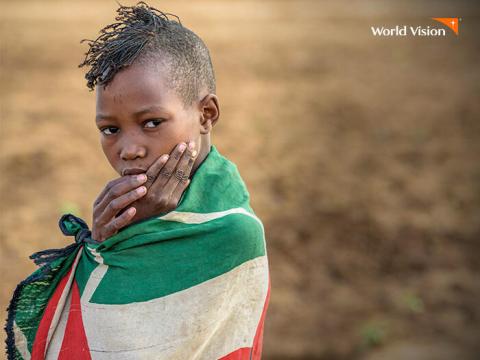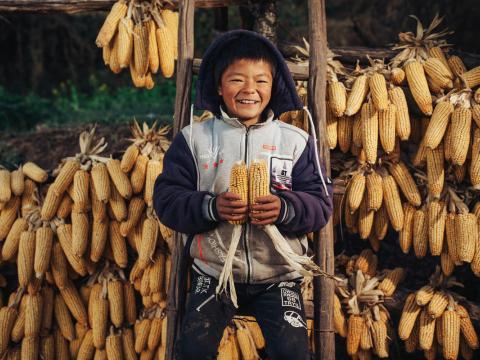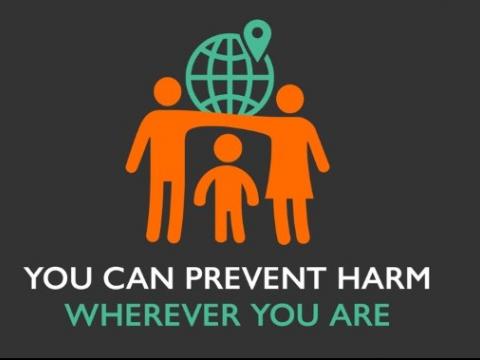
Why we need to be the change we want to see
By Norbert Hsu
Fleeing our home because of bushfires was not something I ever had to when I was growing up in Southern California. But for the children of my friends and family who still live there, this is not an issue they can avoid. I can’t forget last summer when it felt like the whole state was on fire.
I didn’t regularly struggle to breathe because of the poor air quality around me when I was a child. But for some children in the city I now live in, London, it affects their daily lives.
France just had a devastating spring, wiping out a third of production. When you start to look at everything in totality, there’s a pattern that we have to recognise – and respond to.
The children and families in our programmes, and our staff, have been living with the effects of climate change for years – but we and they have not always known to call it that. Instead, we’ve long talked about farmers struggling because of crop volatility, and having to adapt to erratic weather patterns that make it hard to know when to plant, and that affect crop viability. We have pointed to droughts – so many droughts – or flooding, and other extreme weather, and call them natural disasters. They were and are caused by humans, or affected by us.
It's hard to attribute everything to climate change. But it’s even harder to deny that it’s a problem, and it’s getting worse.
As an organisation we have been working on climate change adaptation – working to reduce the negative effects and trying to take advantage of opportunities – for as long as I can remember. Our work to help children and families buffer the shocks that come with climate change is some of my favourite. We call it resilience, we call it livelihoods, we call it different things but what we’re actually doing is to help them be more prepared for volatility and unexpected circumstances. From Farmer-Managed Natural Regeneration to fuel-efficient stoves, our strength in this area, as with all our programmes, is the work we’re doing on the ground, helping communities and households directly.
I think it’s normal to struggle with this issue, as it seems so big and we can feel powerless. But the reason to do something far outweigh the reasons for doing nothing.
For me, those reasons are clear. They are the children fleeing their homes because of rising sea levels, families struggling to eat enough because droughts and floods have once again wiped out any chance of a harvest, farmers unable to provide for their families and communities.
For me, the steps we can take as individuals are also clear. Taking actual steps; walking somewhere rather than getting in a car. Recycling feels like a minimum, something you should be doing wherever you are. Today of all days is a good time to look at how we consume and what we buy, from our clothes – which represent one of the largest carbon-emitting industries in the world – to the amount and kind of plastics we use. Any inconvenience is surely a price worth paying?
God calls us to protect the environment, to care for His creation. How do we do right, as Christians, as people living in the world, and care for the planet we’ve been given?
It is our responsibility to take extra care to make sure it’s not the most vulnerable who suffer the most. As Bishop NT Wright speaks about so powerfully in a recent Leadershift podcast episode, our role in caring for God’s creation is central because: “Jesus didn’t teach us to pray may that we come from earth to heaven, but that may God’s kingdom come from heaven to earth.” World Vision’s environmental stewardship policy says: “We are stewards of God’s creation. We care for the earth and act in ways that will restore and protect the environment.”
Whether you are a person of faith or not, I hope the visible increase in disasters, extreme weather, poor harvests and the fact that they threaten the world's most vulnerable children will motivate you to join us in doing what must be done to end climate change and protect our planet.
Norbert is World Vision’s Partnership Leader for Global Impact. Follow Norbert on Twitter @HsuNorbert

